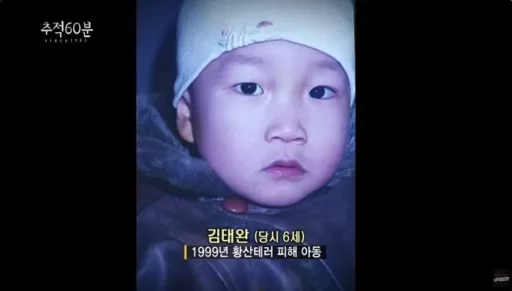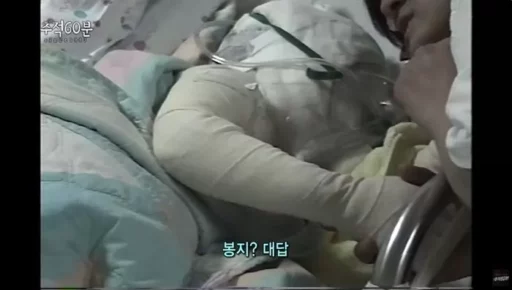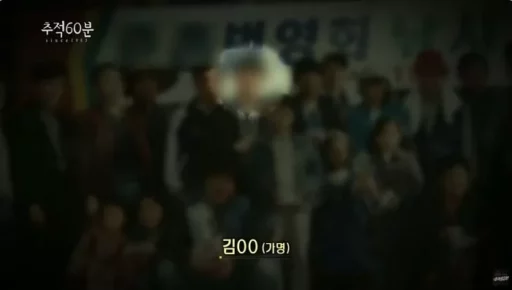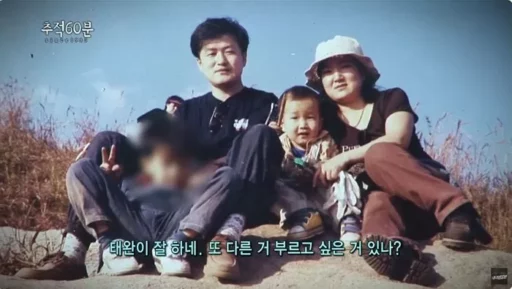26 years ago today, the tragedy of the Daegu 어린이 sulfuric acid attack incident
On the morning of May 20, 1999, a horrific incident took place in an alley in Daegu, where 5-year-old Kim Tae-wan was attacked with sulfuric acid by an unidentified assailant.
Tae-wan suffered third-degree burns on his face and body, lost his eyesight, and, after battling for 49 days, passed away from sepsis. This incident shocked Korean society and ultimately became one of the worst cold cases in history.

On the day of the incident, Tae-wan had an ordinary morning. He was at his mother's beauty salon before visiting his aunt's house and a friend's house, then returning to the salon to grab his bag before heading to an academy.
At that moment, someone suddenly grabbed Tae-wan's hair from behind and forcibly opened his mouth to pour sulfuric acid into it. According to Tae-wan's testimony, the assailant covered his face with something that was inside a black plastic bag.
Forcibly opened his mouth and poured in sulfuric acid
Tae-wan's consistent testimony and limitations of the investigation
After regaining consciousness five days later at the hospital, Tae-wan consistently responded "the uncle from ○○ (chicken house)" when asked about the assailant.
According to a video recorded by Tae-wan's parents at the time, he stated that he met this uncle when entering the alley and that he called out to him from the side of the utility pole.

A friend of Tae-wan who witnessed the incident also identified the same person, but police deemed this friend's testimony unreliable due to their hearing impairment and difficulty in speaking.
During the investigation, traces of sulfuric acid were found on the shoes of a man identified by Tae-wan, but the police did not consider this significant evidence because the shoes were stored with other clothing.
Ultimately, Tae-wan passed away on July 8, 1999, just nine days before his birthday, after 49 days in the hospital.
In a journal-style entry titled "49 Days of Beautiful Time," Tae-wan's mother blamed herself, saying, "I couldn't protect my small and lovely Tae-wan, nor could I find out who the bad uncle was."
Expiration of the statute of limitations and the birth of the 'Tae-wan Law'
In November 2013, the bereaved family and citizen organizations requested the police to reopen the investigation, but no significant progress was made.

Three days before the expiration of the statute of limitations, on July 4, 2014, the bereaved family filed a murder accusation against "Uncle ○○" based on Tae-wan's testimony.
At the time, the Korean Center for Crime Psychology and the Seoul Metropolitan Police Agency analyzed Tae-wan's statements and concluded that "the testimony is specific and credible."
However, the prosecution ruled out the case due to insufficient evidence, and the Daegu High Court also dismissed a petition for reexamination.
As a result, the statute of limitations expired, leaving the case as a permanent cold case.
However, as a result of this incident, public sentiment grew in favor of abolishing the statute of limitations for murder, leading to the passing of a bill in the National Assembly in 2015, which abolished the statute of limitations for murder, named the ‘Tae-wan Law.’ Unfortunately, the Tae-wan case had already expired, and due to the 'non-retroactivity principle,' it could not benefit from this law.
The Tae-wan case already expired and, according to the 'non-retroactivity principle,' could not benefit from this law.

In an interview with the media, Tae-wan's mother stated, "For parents, the statute of limitations never ends," and expressed hope that the Tae-wan Law might alleviate some of the burdens for the families of unsolved murder cases.
This incident has left a deep scar in the hearts of many, even 26 years later, and has served as a wake-up call to Korean society regarding the limitations of the statute of limitations and the severity of crimes against children.
Although justice for Tae-wan has not been achieved, the law named after him has opened a pathway for justice for other victims.
Image source: KBS '60 Minutes of Investigation'
![[Breaking News] Lee Chang-soo, Chief Prosecutor of the Seoul Central District Prosecutors’ Office, Resigns Abruptly for Health Reasons](https://wordkorean.com/wp-content/uploads/2025/05/thumbnail-188.jpg)

